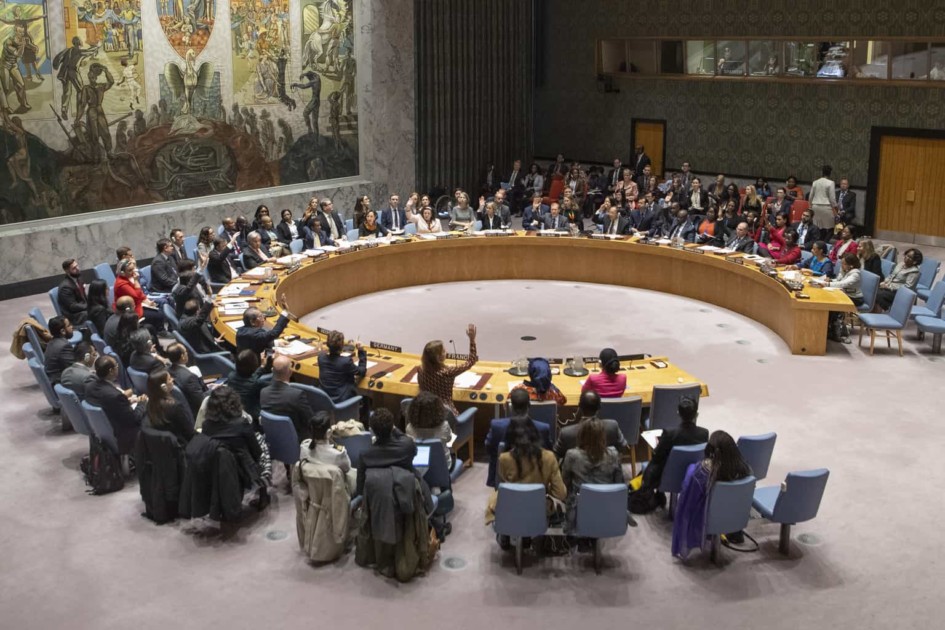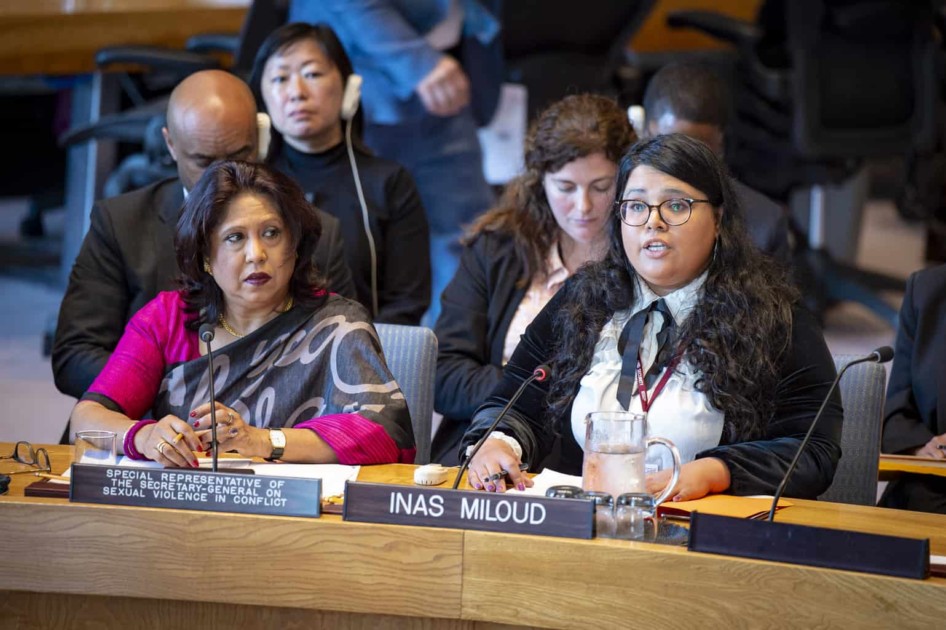Medical and Psychological Care for Survivors
Medical and Psychological Care for Survivors
Current and Past Recommendations to the UN Security Council (Monthly Action Points)
In the Security Council’s forthcoming open debate on sexual violence in conflict, participants should provide details regarding their efforts and proposals for future action on the following key issues related to conflict-related sexual violence (CRSV). Sexual and gender-based crimes are often perpetrated by individuals holding arms and guns, and increased military or armed group activities bring a greater risk of sexual and gender-based violence (SGBV) attacks. We urge all participants to consider the following recommendations:
- Women, women’s civil society organizations and survivors must be part of the negotiations and monitoring of ceasefires and peace processes; the design and implementation of protection of civilian strategies, including in humanitarian settings; development of strategies aimed at preventing violence, conflict, and violent extremism; and investigations undertaken by sanctions committees and experts’ groups.
- Gender equality and women’s and girl’s empowerment must be central to any effort to prevent, address and ensure justice for CRSV. These efforts should be situated in the broader context of conflict prevention and maintenance of international peace and security (SCR 2242 (2015)).
- Ensure accountability for SGBV, including those amounting to war crimes, crimes against humanity and genocide. International humanitarian law and human rights law should be adapted and integrated within national laws, particularly legislation aimed at preventing, addressing and ensuring justice for domestic violence and other acts of SGBV. Ethnic and other minorities including LGBT individuals and those that defy gender stereotypes must be afforded particular protection as they are often targeted for specific acts of CRSV.
- Gender-sensitive humanitarian responses, in line with international humanitarian law (IHL), including for displaced populations, must ensure women and girls’ needs are assessed and addressed. Women and girls fleeing conflict must be afforded safe passage and protection, including from SGBV, while in transit and in final destinations.
- Women and girls in humanitarian settings must have access to the full range of livelihood, legal, psychosocial and non-discriminatory medical services, including sexual and reproductive services. Aid should be provided in line with IHL and not subject to any donor restrictions to ensure comprehensive medical care, including safe abortion.
- Finally, there is an urgent need to curb the flow of guns and other weapons, which exacerbate levels of SGBV. The Security Council must confront this issue, including by encouraging states to ratify the Arms Trade Treaty and establish enforceable national and regional regulations on small arms, consistent with Convention on the Elimination of all Forms of Discrimination Against Women (CEDAW) General Recommendation No. 30. Prevention efforts must also address the role of both governmental and non-governmental actors in facilitating trafficking, including the role of military bases as trafficking hubs.
In the Security Council’s forthcoming open debate on sexual violence in conflict, participants should provide details regarding their efforts and proposals for future action on the following key issues related to conflict-related sexual violence (CRSV). Sexual and gender-based crimes are often perpetrated by individuals holding arms and guns, and increased military or armed group activities bring a greater risk of sexual and gender-based violence (SGBV) attacks. We urge all participants to consider the following recommendations:
- Women, women’s civil society organizations and survivors must be part of the negotiations and monitoring of ceasefires and peace processes; the design and implementation of protection of civilian strategies, including in humanitarian settings; development of strategies aimed at preventing violence, conflict, and violent extremism; and investigations undertaken by sanctions committees and experts’ groups.
- Gender equality and women’s and girl’s empowerment must be central to any effort to prevent, address and ensure justice for CRSV. These efforts should be situated in the broader context of conflict prevention and maintenance of international peace and security (SCR 2242 (2015)).
- Ensure accountability for SGBV, including those amounting to war crimes, crimes against humanity and genocide. International humanitarian law and human rights law should be adapted and integrated within national laws, particularly legislation aimed at preventing, addressing and ensuring justice for domestic violence and other acts of SGBV. Ethnic and other minorities including LGBT individuals and those that defy gender stereotypes must be afforded particular protection as they are often targeted for specific acts of CRSV.
- Gender-sensitive humanitarian responses, in line with international humanitarian law (IHL), including for displaced populations, must ensure women and girls’ needs are assessed and addressed. Women and girls fleeing conflict must be afforded safe passage and protection, including from SGBV, while in transit and in final destinations.
- Women and girls in humanitarian settings must have access to the full range of livelihood, legal, psychosocial and non-discriminatory medical services, including sexual and reproductive services. Aid should be provided in line with IHL and not subject to any donor restrictions to ensure comprehensive medical care, including safe abortion.
- Finally, there is an urgent need to curb the flow of guns and other weapons, which exacerbate levels of SGBV. The Security Council must confront this issue, including by encouraging states to ratify the Arms Trade Treaty and establish enforceable national and regional regulations on small arms, consistent with Convention on the Elimination of all Forms of Discrimination Against Women (CEDAW) General Recommendation No. 30. Prevention efforts must also address the role of both governmental and non-governmental actors in facilitating trafficking, including the role of military bases as trafficking hubs.
Relevant Resources







